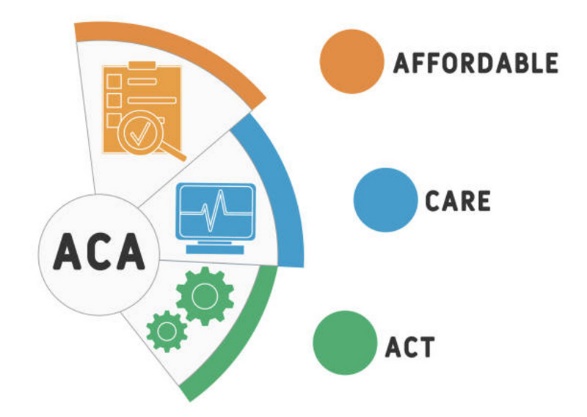Understanding the Affordable Care Act (ACA): Its Impact and Influence
Dec 27, 2023 By Triston Martin
The Affordable Care Act (ACA), commonly referred to as 'Obamacare', has significantly transformed the landscape of health care in the United States since its enactment in 2010. The ACA aimed to expand health insurance coverage, control healthcare costs, and improve healthcare quality. Its implementation has brought about notable changes, impacting various sectors of the nation's healthcare system and influencing the lives of millions. This document delves into the intricacies of ACA, its impact on the American population, the healthcare industry, and its enduring influence on health policies. It provides an insightful understanding of the ACA's triumphs and challenges, thereby offering a balanced perspective on this landmark legislation.
Overview of ACA

The ACA is a comprehensive healthcare law with the primary goal of increasing access to affordable health insurance for all Americans. The legislation comprises several provisions that aim to achieve this goal, such as expanding Medicaid coverage, establishing health insurance exchanges, and implementing consumer protections. One of the most well-known aspects of the ACA is its individual mandate, which requires individuals to have health insurance or face a penalty. This mandate aims to ensure that healthy individuals also contribute to the insurance pool, thereby balancing the risk and keeping premiums affordable for all.
Purpose behind its inception
The ACA was enacted to address the long-standing issue of uninsured Americans and the rising costs of healthcare. According to data from the Census Bureau, in 2010, about 16% of the U.S. population lacked health insurance coverage, equating to roughly 50 million individuals. This gap in coverage left millions vulnerable to financial ruin if faced with unexpected medical expenses and limited access to necessary healthcare services. The ACA aimed to close this gap and make health insurance accessible and affordable for all individuals, regardless of their income or pre-existing conditions.
Impact of ACA
Since its implementation, the ACA has had a significant impact on various sectors of the healthcare system and the overall population. Some of the notable effects include:
Impact on uninsured rates
The implementation of the ACA has significantly reduced the number of uninsured Americans. According to a report by the Kaiser Family Foundation, as of 2019, the uninsured rate had dropped to 10.9%, the lowest since before the ACA's enactment. This decrease in the number of uninsured individuals has had a positive impact on healthcare access and affordability, as more people now have health insurance coverage.
Impact on healthcare costs
One of the primary objectives of the ACA was to control rising healthcare costs. The legislation introduced various cost-saving measures, such as implementing value-based payment models and promoting preventive care. As a result, the growth rate of healthcare costs has slowed down since the ACA's implementation, providing some relief to individuals and businesses struggling with high healthcare expenses.
Impact on pre-existing conditions
One of the most significant changes brought about by the ACA was its prohibition of denying coverage or charging higher premiums based on pre-existing conditions. This protection has enabled individuals with pre-existing conditions, such as diabetes or cancer, to obtain health insurance coverage without fear of being denied or charged exorbitant premiums. As a result, millions of Americans now have access to necessary healthcare services that they previously could not afford.
Key Features of ACA
The ACA comprises several key features that have had a profound impact on the healthcare system and individuals. Some of these features include:
Medicaid Expansion
The ACA aimed to expand Medicaid coverage to low-income adults by increasing the eligibility threshold. This expansion has resulted in millions of previously uninsured individuals gaining access to health insurance, providing them with much-needed financial protection and improving their health outcomes.
Health Insurance Exchanges
The ACA established health insurance exchanges, also known as marketplaces, to facilitate the purchase of private health insurance plans. These exchanges offer a variety of coverage options and provide subsidies to make insurance more affordable for low and middle-income individuals and families.
Essential Health Benefits
The ACA mandates that all health insurance plans offered through the exchanges must cover ten essential health benefits, including preventive and wellness services, prescription drugs, and mental health services. This provision aims to ensure that individuals have access to comprehensive coverage and necessary healthcare services.
ACA Updates

Since its enactment, the ACA has undergone several updates and modifications to improve its effectiveness and address any issues that have arisen. Some of these updates include:
Individual Mandate Penalty
In 2017, the Tax Cuts and Jobs Act reduced the individual mandate penalty to $0, effectively eliminating it. While this change did not repeal the individual mandate itself, it lessened its impact on individuals who choose not to obtain health insurance.
Expansion of Short-Term Health Plans
In 2018, the Centers for Medicare and Medicaid Services (CMS) issued a rule extending the maximum duration of short-term health plans from three months to up to 364 days. This change allows individuals to purchase these plans as an alternative to ACA-compliant plans, potentially providing them with more affordable coverage options.
Future of the ACA
The ACA continues to be a topic of debate and potential changes, with some advocating for its repeal and others calling for further improvements. However, it remains a vital piece of legislation that has made notable strides in improving access to healthcare and lowering costs for millions of Americans. As we look to the future, it is crucial to continue evaluating the ACA's impact and making necessary adjustments to ensure it remains effective in achieving its goals. Ultimately, the goal should be to provide all individuals with access to affordable, quality healthcare coverage. So, efforts must continue to strengthen and improve the ACA for the benefit of all Americans. With ongoing efforts towards this goal, we can hope for a healthier and more equitable society for everyone.
Conclusion
The Affordable Care Act has had a significant impact on the U.S. healthcare system and the population. Through its various provisions and updates, it has improved access to healthcare, controlled rising costs, and protected individuals with pre-existing conditions. While there is still room for improvement, the ACA remains an essential piece of legislation that continues to benefit millions of Americans. Its continued evaluation and enhancement will be crucial in ensuring a healthier and more equitable society for all. So, let us continue to support efforts towards affordable and accessible healthcare for everyone.







